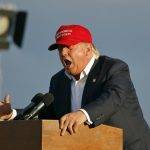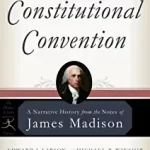The Week of August 18th, 2023 carried an interesting debate among liberal columnists on the causes of Trump populism. In the article, MAGA: Are Elites to Blame? David Brooks of the New York Times argues that the chief cause of MAGA is economic—that meritocracy and globalism has confined prosperity to the educated class. Zach Beauchamp of Vox argues that racial and cultural resentments are far more important, while Robert Zuckerman rejoins, claiming the cause lies in rapacious, predatory capitalism that destroyed factory towns, eliminated union power, and shipped jobs overseas. I’m encouraged to see the roots of MAGA debated, but I’m bothered that by claiming the primacy of one or the other cause, the debate itself begins to polarize, eliminating the third possible cause—all of the above!
Competition is supposed to foster new ideas and broader understanding, but in my experience it doesn’t. It focuses on winning and falls too easily into debunking and belittling, which polarizes in a hurry. In the above article, Zuckerman ends his capitalism argument with “It sure as hell wasn’t English professors or lesbian activists.” Not a response that encourages exploration of the interaction of culture and economics. It’s now a battle for dominance, going nowhere. For me, the plus side of David Brooks’ perspective is that it focuses on the MAGA base at a time when the liberal media is focused solely on Trump’s problems, and he concentrates on the liberals’ role.
From where I sit, MAGA is the result of a perfect storm that was a long time in building. The social revolution began with the rise of multiple
 movements of the Sixties, resulting in the counter-revolution of Reaganomics in the Eighties. The consequent rise of hyper-individualism and “me-ism” infected both sides of the cultural chasm, while globalization and the rise of mega-empires on the economic side impoverished the working class. As the economic gap between rich and poor widened, the liberal side remained blind to all but identity politics, firing up dormant hostilities on the conservative side. Meanwhile the technological revolution gave the microphone to all alike. And along came Trump, reporting the country was a mess.
movements of the Sixties, resulting in the counter-revolution of Reaganomics in the Eighties. The consequent rise of hyper-individualism and “me-ism” infected both sides of the cultural chasm, while globalization and the rise of mega-empires on the economic side impoverished the working class. As the economic gap between rich and poor widened, the liberal side remained blind to all but identity politics, firing up dormant hostilities on the conservative side. Meanwhile the technological revolution gave the microphone to all alike. And along came Trump, reporting the country was a mess.
And it was and still is. Destabilization is everywhere, with chaos giving way to the rise of dictatorships globally. Waves of fleeing refugees hit our borders. Traditions are uprooted on both the cultural and economic side. Obama gave a unifying social vision to the thriving liberal side but not the economic, so the working class woes and resentments remained invisible. The prescription drug epidemic surged, furthering working class decimation. But the liberal side and liberal media remained a collection of individual causes, each blind to all but its own ideals. So intense was media focus on race that some have suggested they created the issue. I don’t agree, but it has fanned the flames. Everywhere there is uncertainty and dread, but the liberal forces now seem dominated by gender issues that affect very few.
The golden hope is the unifying effect of Trump’s attack on democracy itself. The media has shifted its attention to the courts and to Trump’s total disregard of the rule of law. We have a terrifying year ahead of us, and it’s really not possible to see beyond that. But juries will decide Trump’s fate, and while I’ve only served on a couple over the years, I’ve found that juries take their job seriously. Given the task of deciding someone’s future, jury members feel a heavy responsibility to fair play and justice. So I have hope. I also hope the rest of us, of whatever race, nationality or gender, will join in protecting the institutions that are only as strong as we are.





Comments are closed.